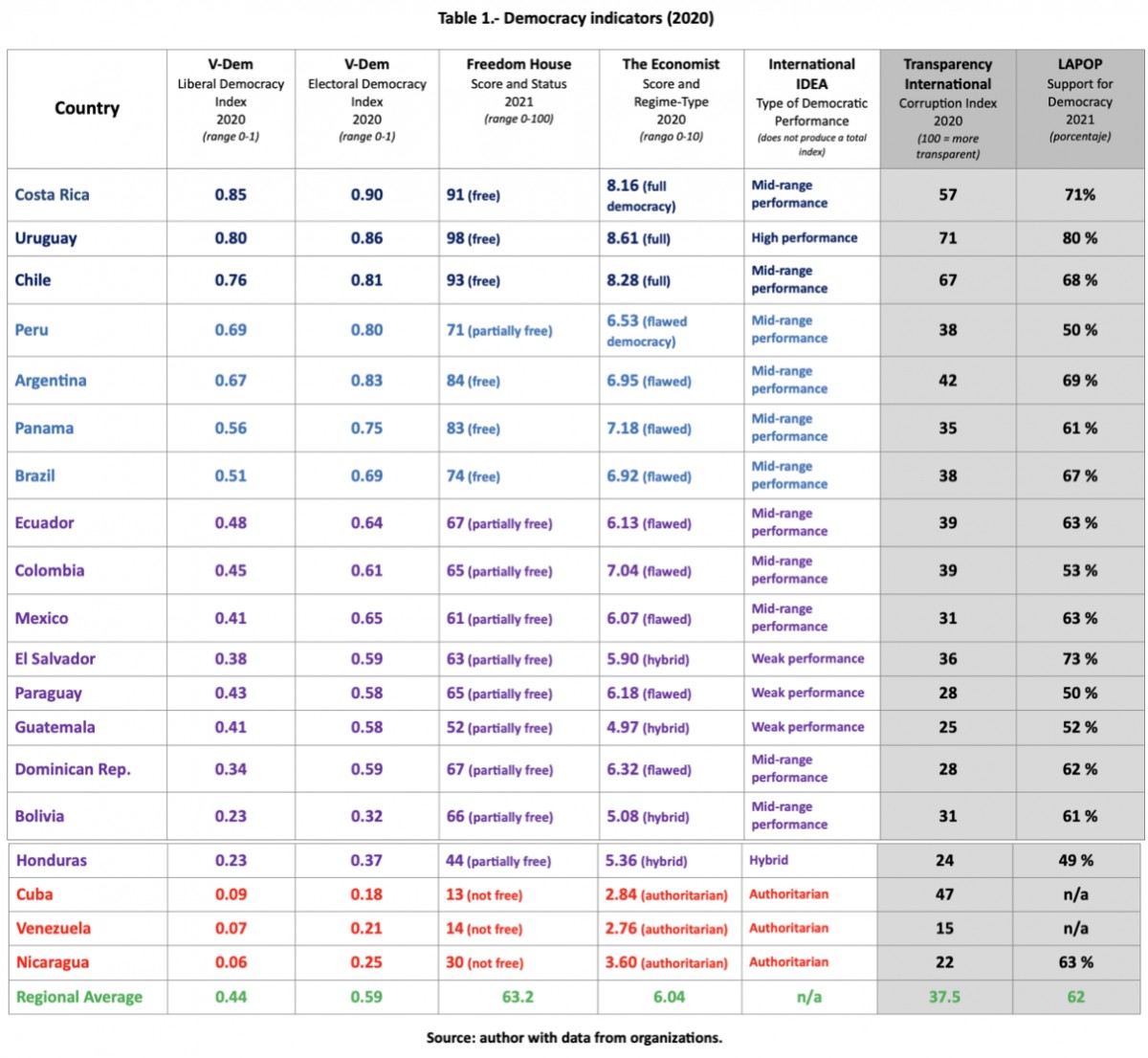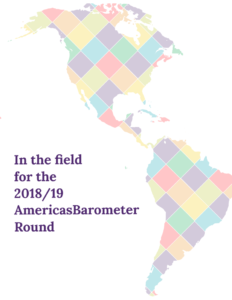 Latin American democracy is more resilient than appearances may suggest, according to a new report.
Latin American democracy is more resilient than appearances may suggest, according to a new report.
Opinion polls show that only around a fifth to a quarter of Latin Americans might welcome authoritarian government; recent decades of democratic experience have consolidated a culture of citizens’ rights and political participation; and the checks and balances existing in some countries provide an additional safeguard against democratic backsliding, notes analyst Enrique Gómez Ramírez.
However, interference by various governments with the independence of the judiciary and attacks on civil society (including by cutting financial resources) pose a danger for democracy in the region, he writes in Democracy and human rights in Latin America: Is democratic erosion gathering pace?, a report for the European Parliamentary Research Service:
Among the positive democratic trends, according to Brookings data……
1) Since the 1980s Latin America has become the third most democratic region in the world, and the first in the developing world.
2) Latin American democracies have proved very resilient (only 27 % have suffered an interruption in the last four decades).
3) Elections are generally accepted as the only legitimate means of coming to power, and the
region has the highest turnouts in the world (67 % on average).
4) Latin America has one of the highest percentages of women parliamentarians in the
world (27 % on average).

Credit: Dinorah Azpuru
The next time the United States will host the Summit of the Americas, in 2022, at least three nations—Cuba, Nicaragua, and Venezuela—will not meet basic conditions of democratic eligibility, notes AS/COA’s Eric Farnsworth. And soon there may be even more. In the twenty-seven years between U.S.-hosted Summits of the Americas, the map of regional democracies has gone from monochromatic to variegated, including some nations which remain democratic today but where national executives are actively disregarding democratic responsibilities and requirements and trendlines are unfavorable.
Battle for hearts and minds
Yet regrettably, U.S. grand strategy continues to downplay the significance of the region and the importance of meaningful, visionary steps that promote win-win solutions, as the Chinese like to say, with regional partners, Farnsworth writes in The National Interest. We are in a global battle for hearts and minds, where decisions are being made today that will lock in relationships for the longer term. But Washington doesn’t think in those terms, and continues to layer on obligations and expectations for the region without offering meaningful additional benefits.
 The region has lately been suffering what Chatham House’s Christopher Sabatini calls ‘a new wave of populist movements’, favored by the current economic crisis and public anger with the traditional political class, threatening long-term political stability and economic growth. In its 2021 report, Latinobarómetro also mentions the lack of parliamentary majorities as a factor hampering governability in the region, Ramírez adds:
The region has lately been suffering what Chatham House’s Christopher Sabatini calls ‘a new wave of populist movements’, favored by the current economic crisis and public anger with the traditional political class, threatening long-term political stability and economic growth. In its 2021 report, Latinobarómetro also mentions the lack of parliamentary majorities as a factor hampering governability in the region, Ramírez adds:
Nevertheless, as shown by the Latinobarometro and the Americas Barometer of Vanderbilt University’s Latin American Public Opinion Project (LAPOP), support for democracy in Latin America has been steadily decreasing over the last decade. According to LAPOP, it fell from almost 69.2 % in 2008 to 57.7 % in 2018-2019, and tolerance for executive coups rose from 14.8 % in 2010 to nearly 24 % in 2018-2019. RTWT







